(Glenn’s Technical Insights… used to be part of our bi-weekly newsletter but we decided to make it a regular blog post instead so it can get more visibility. It covers interesting new hardware and software developments that are generally relevant for SQL Server). It also can just be technically related items that I find interesting.
AMD Ryzen 3000 BIOS Fix
Over the last month or so, there has been a small controversy brewing in the hardware community about the maximum boost speeds for individual cores in AMD Ryzen 3000 series desktop processors. The allegation was that maximum boost speeds were sometimes 25-50 MHz below the rated maximum boost speed.
For example, the AMD Ryzen 7 3700X has a base clock speed of 3.6GHz and a Max Boost Clock of 4.4GHz. This is how AMD defines Max Boost Clock:
“Max boost for AMD Ryzen processors is the maximum frequency achievable by a single core on the processor running a bursty single-threaded workload. Max boost will vary based on several factors, including, but not limited to: thermal paste; system cooling; motherboard design and BIOS; the latest AMD chipset driver; and the latest OS updates.”
So, for example, people were seeing max boost speeds on the fastest core of a AMD Ryzen 7 3700X of perhaps 4350 or 4375 MHz instead of 4400 MHz. Not everyone was seeing this, but a significant number of people were seeing this issue. Just to be clear, this is not something you would notice in real life, but it was measurable in some benchmarks.
AMD has released a new AGESA version 1.0.0.3 ABBA to motherboard vendors that seems to improve this issue. Motherboard vendors should be releasing BIOS updates in the next 2-3 weeks. The reviews and benchmarks of the new BIOS I have seen typically are showing a single-threaded performance increase of 2-3%.
Here are the official AMD blog posts that cover this issue:
Ryzen Community Update: BIOS Updates for Boost and Idle, Plus a New SDK
Personally, I think this issue was blown way out of proportion. On the other hand, it is good that AMD addressed it pretty quickly. If you take the time to get everything updated, you will get a small performance increase for free.
If you want the best performance possible from your AMD Ryzen 3000 system, you need to do several things:
- Make sure you are on Windows 10 Version 1903
- This gives you a scheduler update so that Windows will favor the fastest core on your processor
- It partially enables UEFI CPPC support (so that clock speed increases more quickly)
- Make sure you are on the latest AMD chipset drivers
- This gives you the UEFI CPPC support in Windows 10 1903, and other improvements
- Make sure you update your BIOS
- AMD continues to make small improvements with each new AGESA version
September Release of Azure Data Studio
On September 10, 2019, Microsoft released the September version of Azure Data Studio, which is version 1.11.0. Microsoft continues to add new features to each release of Azure Data Studio. The release notes are here.
Some of the notable improvements include:
Enable SQLCMD Mode
Enable Community Extension: Query Editor Boost
Notebook Improvements
Visual Studio Code August Release Merge 1.38
Bug fixes
